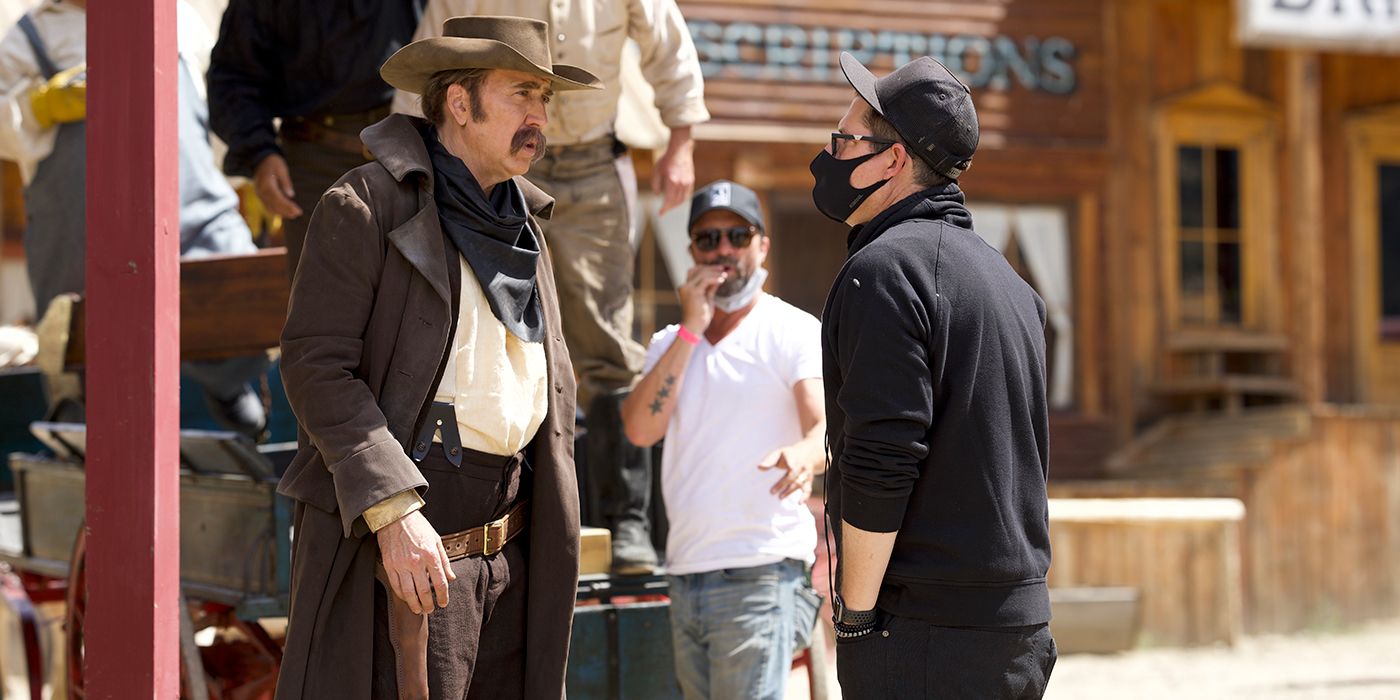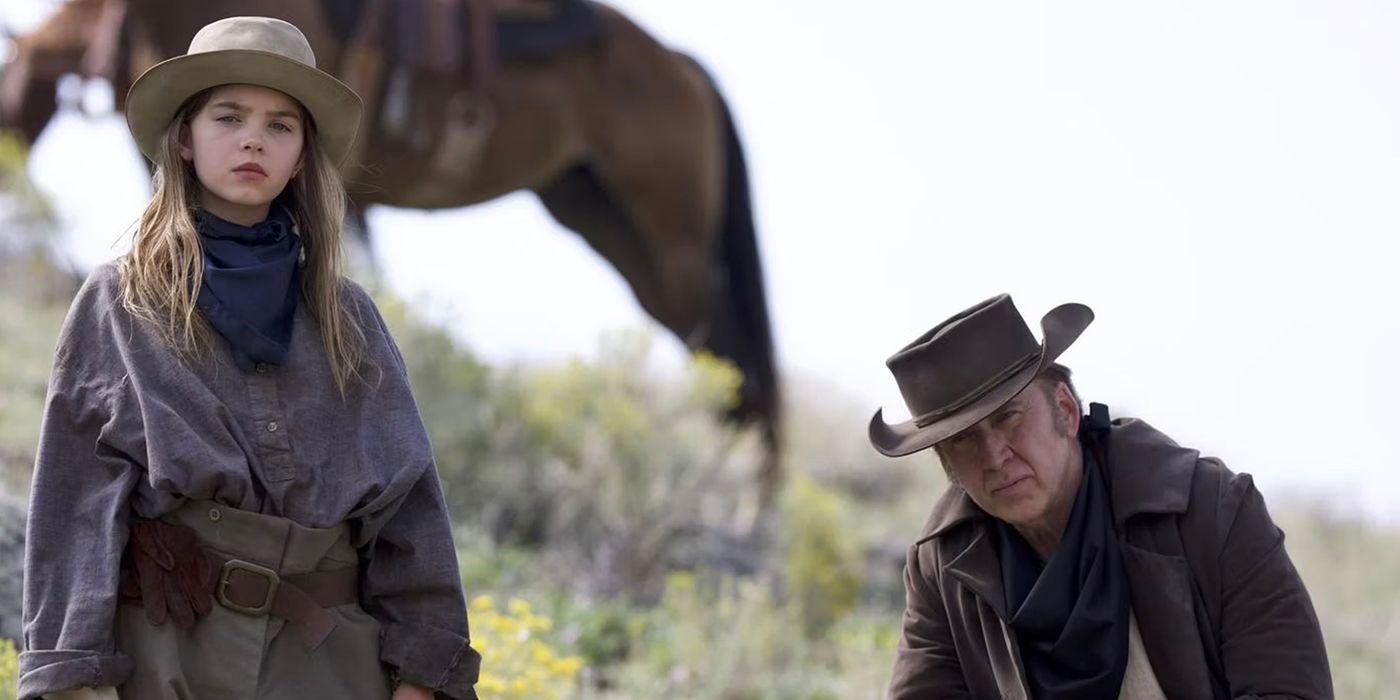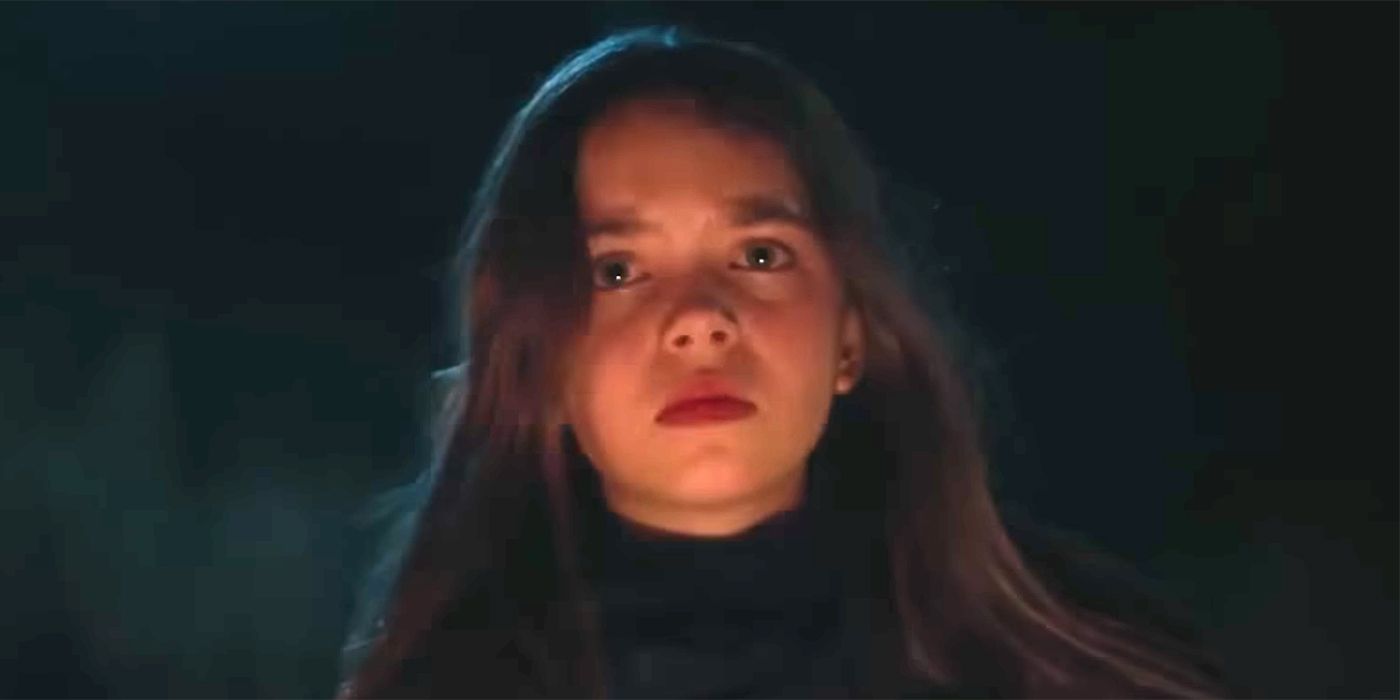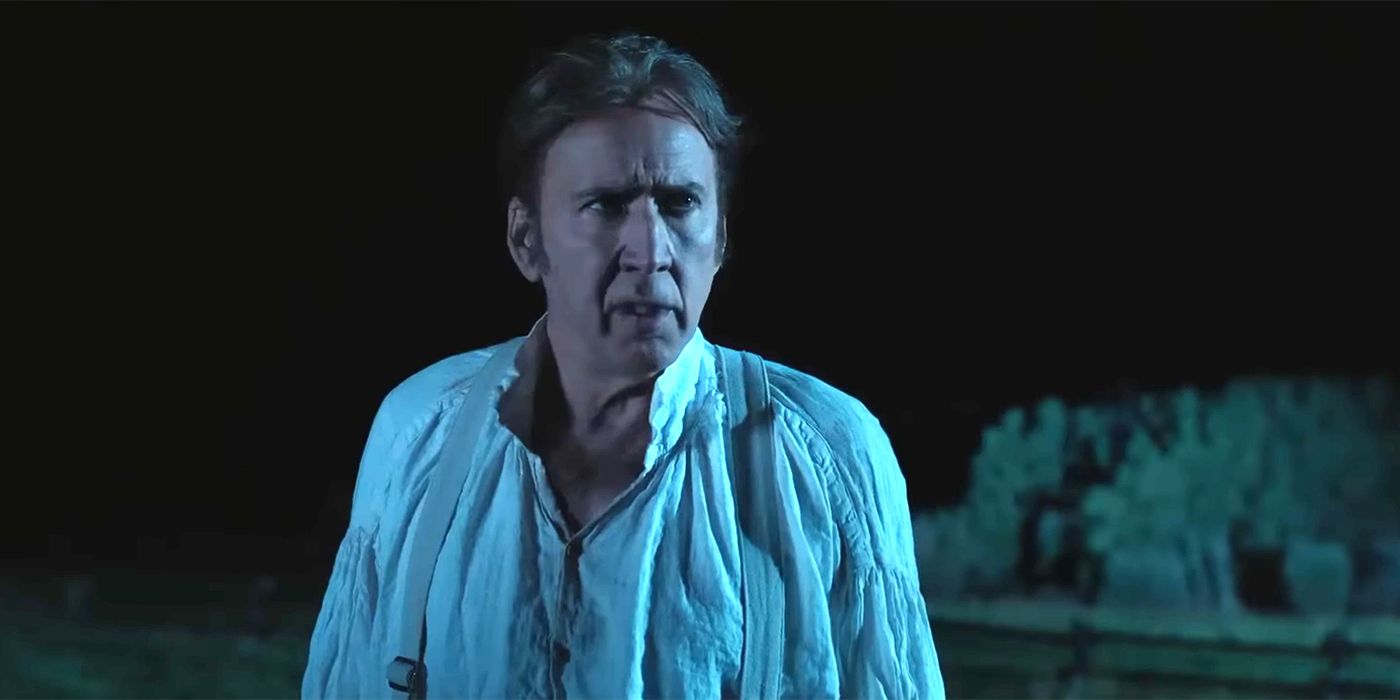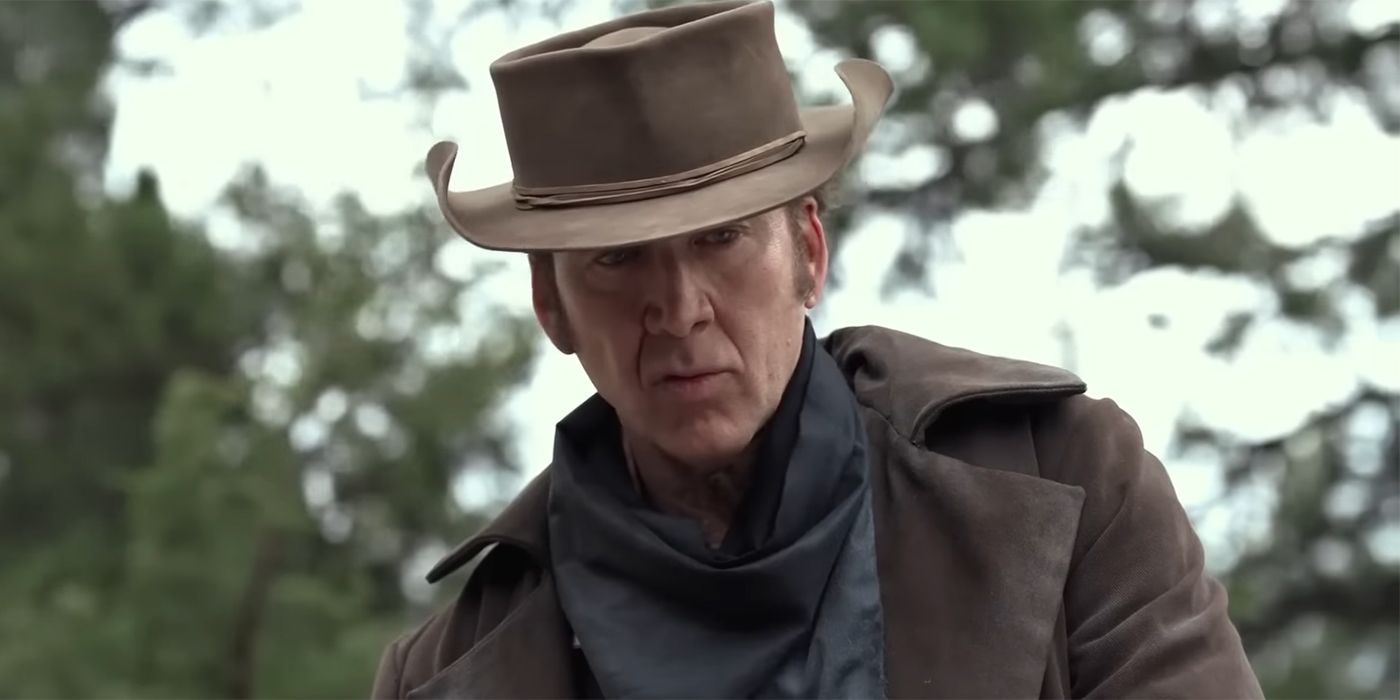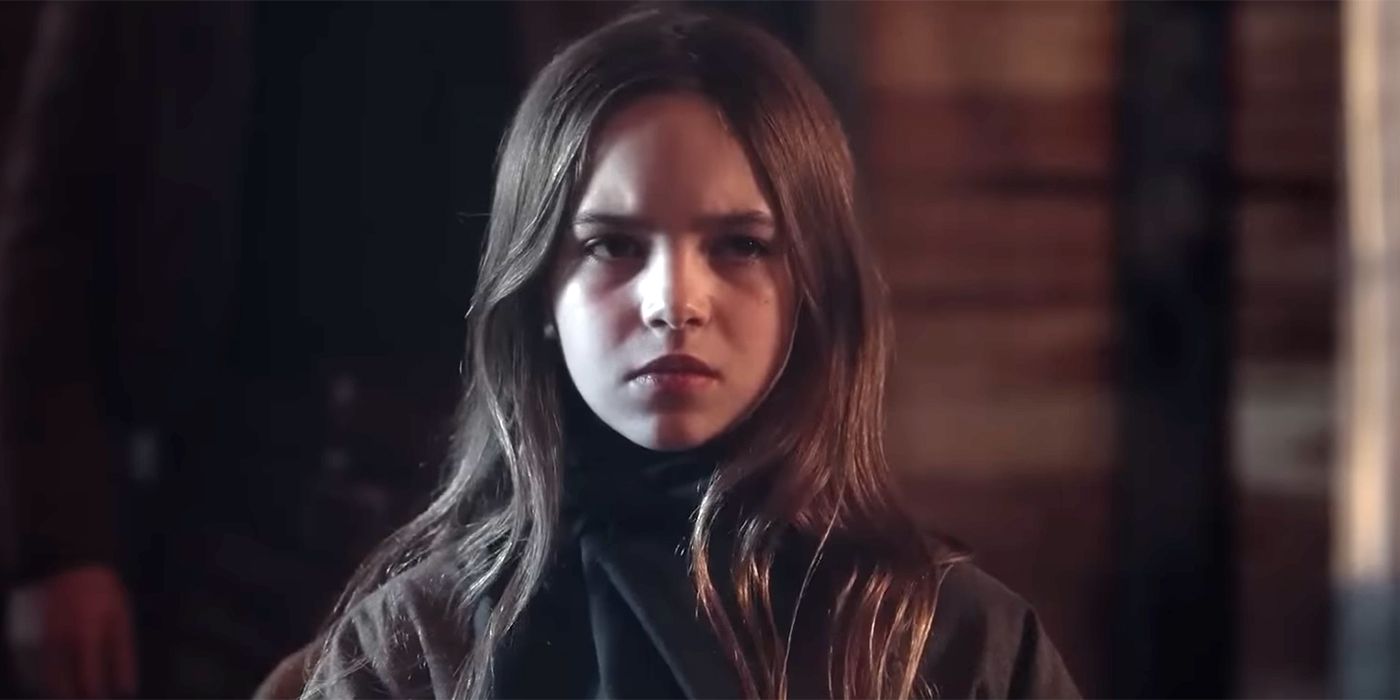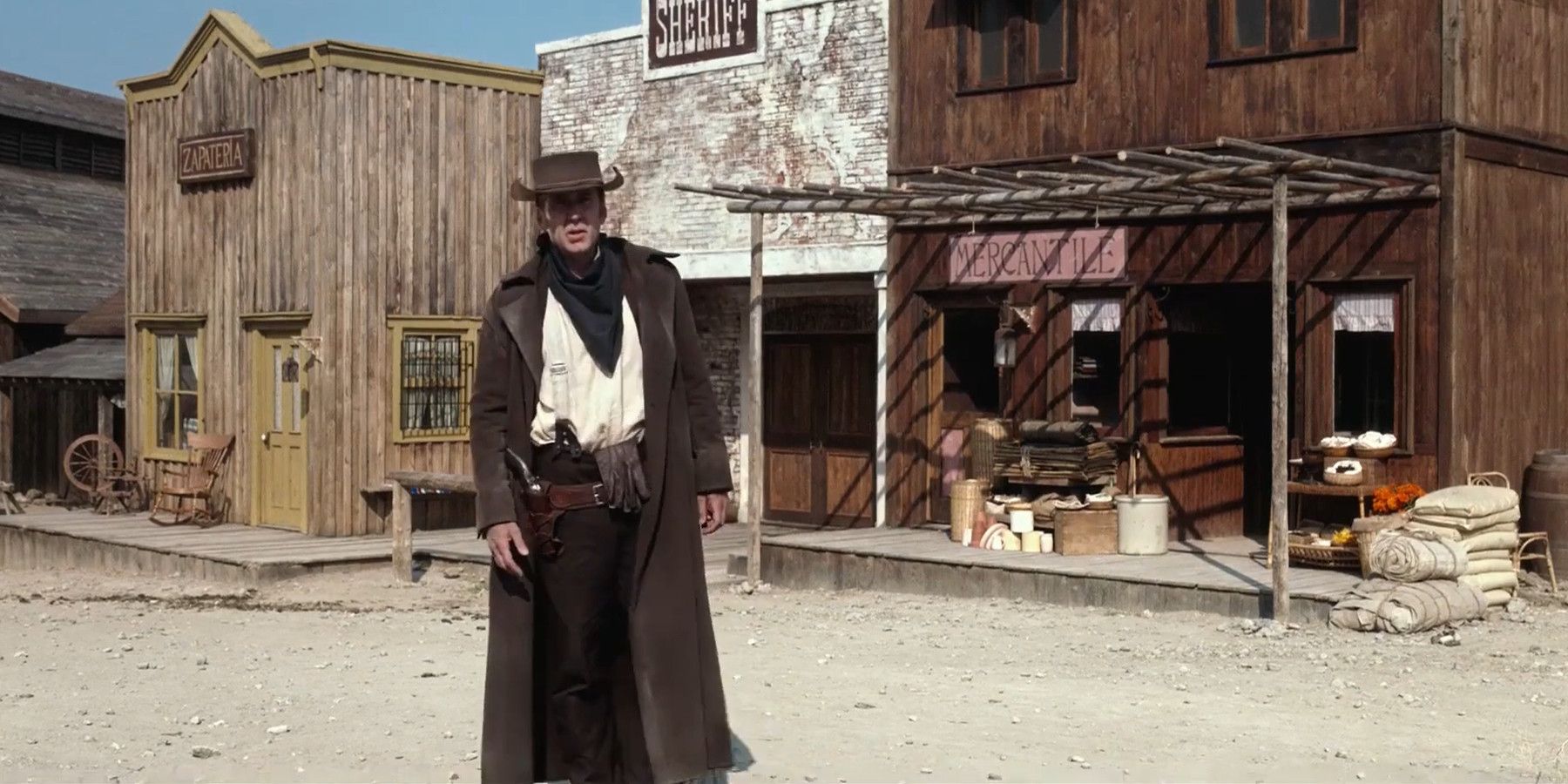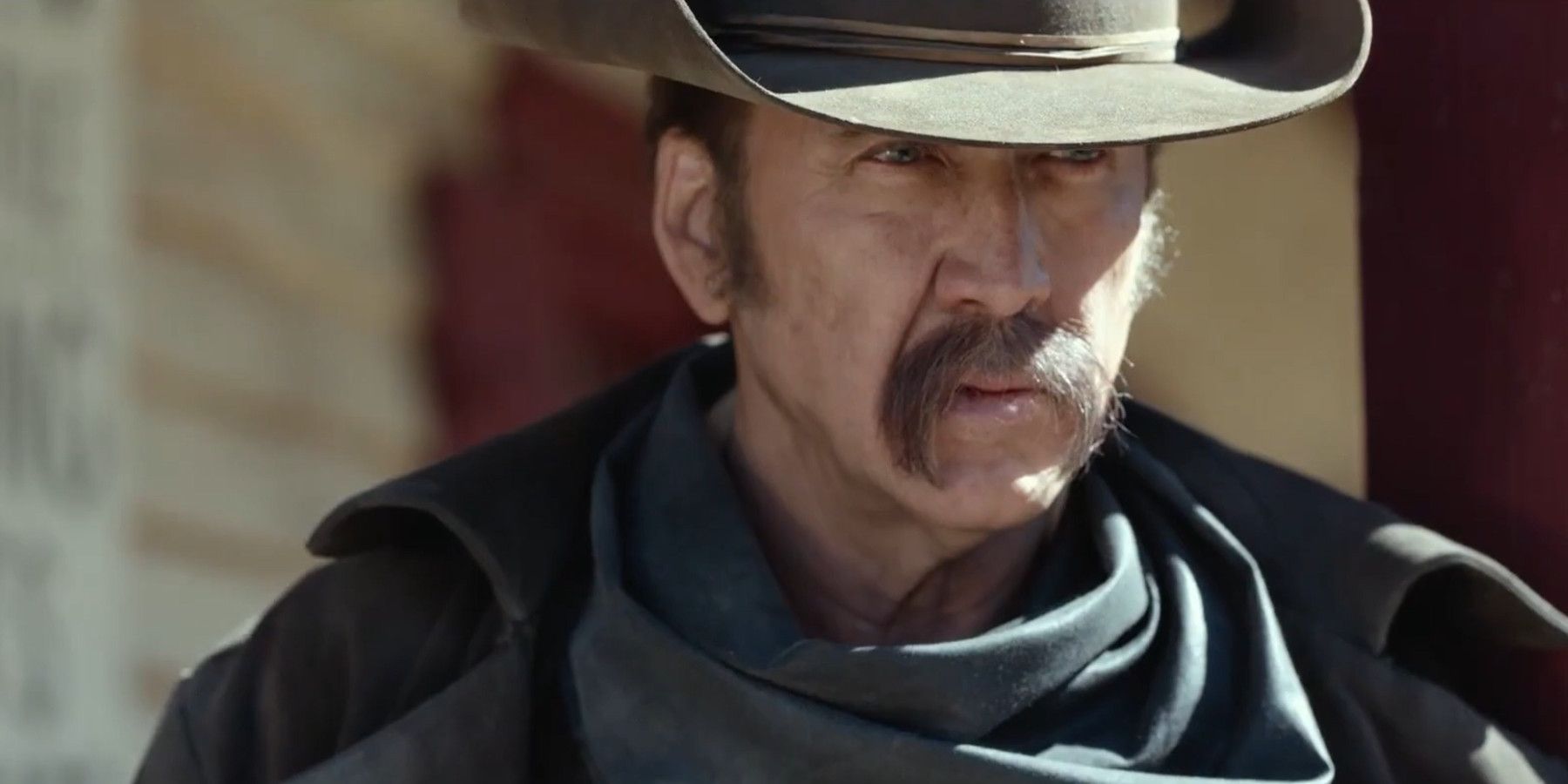The Western genre is welcoming another iconic performer to its midst with Nicolas Cage in The Old West. The film stars the Oscar winner as Colton Briggs, a former ruthless gunfighter who finds his peaceful life interrupted when his wife is killed by someone from his past, putting him and their daughter on a path for revenge.
Alongside Cage, the cast for The Old West includes Ryan Kiera Armstrong, Shiloh Fernandez, Noah Le Gros, Nick Searcy, Abraham Benrubi, Clint Howard, Kerry Knuppe, and Adam Lazarre-White. Helmed by Brett Donowho, the film acts as both a love letter to the Western genre and a brilliant deconstruction, delivering a modern take on the classic tale of revenge.
Ahead of the film's release, Screen Rant spoke exclusively with director Brett Donowho to discuss The Old Way, his personal history with the Western genre, bringing Cage into one of his first Westerns, the challenge of casting a child actor, and more.
Brett Donowho on The Old Way
Screen Rant: I'm very excited to talk with you for The Old Way. I loved how it felt like both a deconstruction of the Western genre as much as a love letter to a lot of the old stories. How did the project really come about for you?
Brett Donowho: I'm glad to hear that you got those layers of the film. I grew up on a ranch for a lot of my life, so the Western itself is a genre that not only I grew up watching, but participating in it, if you will. I had the cowboy uncle going to rodeos, and me and the Boy Scouts would go out and ride horseback growing up. So it's a genre, coming up with my momma and papa, watching Rawhide and Gunsmoke and, of course, the John Wayne and Charles Bronson movies, so it's something I've always loved.
What's amazing is I've never been offered a Western before, which is funny, because that's what Nic Cage has said in his interviews, I was never offered a Western before, which is kind of interesting, I'm so happy that we were able to offer him this one. But, when I read it, as a father of three daughters, I immediately gravitated to not just the Western ideology and the mythos of what this revenge tale is, but obviously, the characters of a father and a daughter, which I can relate to profoundly. And then, we'll get into that, but I read these characters as being on the spectrum, and I'm a person that, I made Music Within, which is another great movie, in my opinion, that talks about the disabled, and the passing of the ADA, so when I read this, I was like, "Wow, we've never seen these characters, like a father and a daughter who are emotionless, that are outsiders, that are misunderstood, not only by other people, but by each other."
As you say, the deconstruction to me was also just kind of seeing these characters we've never seen in the late 1800s, and then going through my love of the Western to pick the pieces, and the landscapes, and the topography that can capture, I think, in a fresh way, I hope you would agree, with the mountains of Montana versus the dusty desert of New Mexico. We were able to kind of just give this homage to the great Westerns, the Rio Bravos and Once Upon a Time in the West, and just all these great iconic movies that I grew up with, I was like, "Alright, let's capture this beautiful landscape, and show kind of this homage, but let the young people find their way to this modern telling of a progressive story through the father and daughter." So, I'm glad that you picked up on that, and I hope it translates everyone like that.
I do love in particular that one conversation that they have, where Nic reflects on his own life being very parallel with his daughter. Going into that scene, what were some of the biggest conversations you had with Nic and Ryan about how to properly convey the emotions of this scene when they are very emotionless characters?
Brett Donowho: You know, no one has this story. Grant, you have it right here, my friend, an exclusive! I'll tell you this, I was sitting there in the production house and next to the production house is the garage, because obviously, we're in the middle of nowhere in Montana, and that's where all the wardrobe is. So, on that particular day, I'm there to meet Nic, and we're gonna go over the wardrobe, and he comes in, he goes, "Brett, come here!"
And he pops down on the sofa, sitting right there in the living room in front of everyone, he goes, "I got some questions for you," and immediately dives into this monologue, and I haven't said this on the behind the scenes, I haven't said this anywhere, and I'm glad you asked about it, because it was so great to see that, to me, that's one of the favorite scenes of the entire movie, for myself, because it's transitory in the sense of the development of these characters, and it was for him. So, immediately we go into this, like, avant garde, off-the-cuff kind of director-actor diatribe of like, "Alright, what about this? What about this? And can we say this, and can we move this?"
We kind of just went into Colton right there, because that is the essence of who Briggs is, and then within that, it just so happened that Brooke, my little Ryan, was out there as well doing I forget what aspect of the film at that point, and I said, "Alright, Nic, this is amazing," after we'd worked for a little while and, "What about, can we bring Ryan in?" He goes, "Yeah, yeah, let's do it!" That was literally the first. Indie cinema is indie cinema; you don't have a lot of time or money for the little bits of time that we had grabbed here and there. This was the first time that we had a considerable amount of time early on in that week before shooting where we actually had a proper rehearsal, and it was that very scene.
It was fantastic, man. That's why I do this, you know? I came up as an actor, and now I kind of use my left and right brain as a director acting through my talent. So, sitting there in this living room with all the hustle bustle, we're having this rehearsal, we don't care about anyone else or anything, we're just like, "Okay, let's go. Yes, this is the moment!"
I hope that you appreciate it, I think we captured that moment, and it's just one of the more beautiful moments of the entire picture, because you really find that that is the arc, that's the midway point to these characters finding each other, it allows Briggs to open up to the idea of love for his daughter, but it also allows his daughter to actually find her emotion, which is obviously the climax of the movie, them kind of transitioning to find parts of themselves they didn't know exists. So I love that scene, and I love telling the story, because it was just such a fun experience to be able to work with them, and find those beats that we find in the movie.
Well, I love that scene just as much as you do. It gives Nic's character humanity for the audience after seeing this very cold portrayal throughout.
Brett Donowho: I think, and I hope, that this is the first time I think we've ever seen [that] in a Western. Think about this, just from an intellectual perspective of character development we've never really understood. Because I even have foreign friends of mine that just never understood the American Western. They're like, "Well, is he good, or Is he bad? Is he antagonist, or is he a protagonist?" I'm like, "Both!" That's the point of humanity, we're trying to figure ourselves out, and there's no other genre in the world that showcases that more than the American Western.
This is the first time we've seen a character who you're discovering along the way why he is robotic, why he is cold, how he doesn't have emotion, and it literally is, "Well, is he a psychopath, or is it because he's spectrum, and he literally doesn't have the ability to find that emotion, and he's just robotic going through the lessons of life, or going through the motions, rather, to overcome what the Western's about?" The difficulty of a terrain that you have to kill or be killed, I don't think of another character [like that]. I tried to watch every Western that I could before this movie, and it's like, we've never really seen that insight into the cowboy, as it were.
That's what's so amazing, because I think you fall in love with them, and I think that's the transition is like, I love Colton Briggs, because he does sacrifice himself for his daughter. That is the ultimate test, and kind of proof that he changed, because he's like, "You know what, I care for you, and I'm going to do my best, and I'm rusty." But, so anyway, I love it, because I just find that his character, I hope, I swear to you, man, I just hope people get that. Because we're touching on elements that, to me, is why I made the movie, I'm like, "Wow, we get to discover the subtext of a character that we all love, and we get to see him in a new light, in a modern progressive way," as you said, which is the deconstruction of it to me.
Off the top of my head, we've seen a lot of Westerns where characters evolve, but not to the level of this. Nic's a phenomenal actor, and this comes at an interesting time where this is one of two of his first-ever Westerns to get to play in. Was he the first person in your mind when you were reading the script to play this character?
Brett Donowho: Yeah, when I first read the script, it was 3 a.m., I was at one of my daughter's house, in Dallas, Texas, actually. I read it at three in the morning, and when I finished it, I was like, "Oh, my God, this is an amazing script," and I resonated [with it]. I get all these different scripts, and I read them, and I'm trying to connect to them on a visceral and esoteric level, if you will, which might sound highfalutin, but I swear to God, it's true, because as an actor, I'm an emotional being.
I'm like, "Alright, do I connect with this or not?" So, I read this, and I was like, "Wow, I connect to this on every level, Western, father-daughter, emotional, misunderstood." I'm older now, I'm finally starting to understand myself, so I'm reading this going, "Okay, I get it, now, I get it, I can showcase what I've learned to the script." So, my point of saying all that is that when I finished it, I was like, "Oh, my God," I couldn't even think of Colton Briggs, because all I could think about is how difficult it would be to cast a 12-year-old Brooke to play this role.
That initially was my very first thought, and then as we got into it, when I started talking to the producers, I said, "I really want to make this, let's get this going." We started going through the availabilities of the actors, and we started discussing all the different kinds of people that were traditionally on the nose, if you will, and in one of the those many conversations, Nic's name came up, and it was brought up, more or less, in a kind of outside the box [idea]. I was like, "Wait a minute, I don't think that is outside the box, guys. Has he ever done a Western?"
I think that's when we first realized he hadn't, because I didn't even know. I've watched Nic Cage movies, but I hadn't researched his filmography, so then we're like, "Wait, he's never done a Western. Oh my God, I bet he would kill this." Then, [we were] off to the races, we pursued him, and it was cool, though, because he responded — Sydney Pollack was a mentor, God rest his soul, and he used to say to me, "You know, Brett, I don't get the first top 10 actors that I want," because it's such a difficult business, and everyone's always working, and whether they get the material or you have to fit the schedule.
That's the complications that people outside of our business are not aware of is how difficult making a movie is, so it was just the stars aligned, if you will, and thank God, because yeah, Nic did not only love the script, but we had a great meeting as well. He came on board, and it was off to the races, and I feel very fortunate not only to have him in this film as an indie filmmaker, but also to kind of ride that resurgence of his career. We got him, I think right when Pig was coming out, of course Mandy I was like, "No way! Alright, let's ride this wave, baby, give me that surfboard" I hope this lives up to the level of those features, those are amazing movies.
I think, much like Prisoners of the Ghostland, this is one that people might not initially catch, but when they do, they're gonna be like, "Oh, wow, that's a really good one." As you are a big fan of the Western genre, did you give Nic and the rest of the cast any specific watch list of movies to get the tone of what you were going for on this one?
Brett Donowho: I'll answer it by saying this, one of the conversations that I had with Nic — I was tight with, and respect severely, Philip Seymour Hoffman, and God rest his soul, as well. So I had said, "Mr. Cage, as an actor, artist, I really want us to do the best we can to have every human in this movie have the level of talent as you and Mr. Hoffman. Because I, as an artist, if I can believe you, then I can escape into this world." I'm showing my age, I guess, but I just find that we've lost some of that art.
Nic and I talked a lot about acting, and about the specificity of the craft, and how we're kind of sad and morose that the young people are losing that Thespian, if you will, understanding of how difficult that craft is. So, it was less about emulating any iconic Western hero like Clint Eastwood or Chuck Bronson, and more about finding the specificity of Briggs himself and Brooke herself. Those were the conversations we had, and then it was up to me to set those locations, because you put the costume on, you set the location, and you're believable, then you have a movie. That's what I think I'm most proud about of this film is that it's the first time in a long time I've been able to pick something that I really loved, I was passionate about, and I think that the cast lives up to the material.
I'm curious to hear more about that casting process, Brooke. Ryan does a phenomenal job, but what was it like trying to find the perfect person to play Brooke for this film?
Brett Donowho: You're gonna love this story. First of all, I'd have to ask Farrah West, our casting director. But we had well over 400 submissions, I personally looked at 400, I think there were 1000s. [Chuckles] Farrah had to just weed through [them] all, and this is worldwide, everything's digital now, and it's more so after COVID, so all the auditions are coming in, and Farrah's weeding through. God bless her, that woman works 18 hours a day, she answers my phone call at four in the morning. So, she sends me a bunch of auditions, and we're going through two months of me meticulously watching every audition for every role, because I wasn't going to let down what I promised Mr. Cage, I had to find the best actor.
Ultimately what happens is, I was really shocked about it, by the way, I was super shocked that there's so many talented 12-year-olds in the world. Because initially, that was my greatest fear is that you can't find one, right? We had many that, through the course of this process, I found that I thought were exceptional, or I would say really good. You would think I'm making this up, but I'm sitting in one of my favorite restaurants in Chicago, and I get an email, and it's like, "Oh, by the way, we finally got this audition for the last one you're gonna see, check it out."
I walked out, put in my earbuds, as I'm wearing right now, and I start to watch this audition, and tears form in my eyes, if I might be so melodramatic. I was just like, "Are you kidding me? Are you kidding me? This is Brooke." Then, one of the producers calls me, he can tell I'm kind of emotional, he's like, "What's wrong with you?" And I said, "Dude, we found Brooke," and literally what happened was later, Dean Armstrong, who plays Clark in the opening of the movie, that's her father, that's Ryan's father, right?
He tells me when he gets to set, one of the first stories he tells me, I'm driving them to set just to show them around and stuff, and he's like, "She was going on break, because she was shooting American Horror Story." I couldn't even believe their schedule, I think they work eight months, or something, on that on those six to eight episodes. He said, "She needed a break, and we weren't going to take any other offers, and we were getting quite a few. Then it was a Western, so I decided to read it. I'm a responsible parent, and I thought the script is really good, so I decided to share it with Ryan. After Ryan read it, she was so blown away by the character, and so emotionally invested, she was like, 'Dad, I have to play this character, because this is me.'"
I have to tell you, she is not Brooke. She's a bubbly 13-year-old. She's a normal kid, she's awesome, she's very intelligent. She acts like a 40-year-old, but I'm just saying she's a goofy, fun girl. We're really close, her and her father and I, and in the audition she sent me was a take out of the film. It wasn't even an audition, it was Brooke, so when I saw it, I was like, "Oh, well, there's Brooke." They say, I'm sure you've heard, "You can see 1000 people, but when the character is there, it's there." So, as an actor, I would say to other actors, don't ever be offended by not getting the job. In the director's mind, you just weren't that particular character that day, so keep going, because one day you will be. On this day, Ryan Armstrong is definitely Brooke Briggs.
Well, I'm glad you found her because she did a phenomenal job in the film.
Brett Donowho: She holds her own, right, with Cage? Like, that's what's amazing.
That was actually going to be my next question. What was it like, as both an actor and a director, seeing these two work with one another to prepare for their scenes and then go into the scenes and play off of one another?
Brett Donowho: There's no greater high than to see people at their best. It's like being at the best football game or the best Formula One, you're just looking at pro athletes, if you will, that are artists performing at the height of what is possible under extreme circumstances. That fire pit scene is at the Story Ranch 45 miles from any road, basically. So we're dug in back there behind these cliffs, that particular location is right around the corner from where I shot the ambush scene. I'll even give you that tidbit, ultimately, that's the only scene in the movie where you can faintly hear a genny because there was no way to run power lines 200,000 yards. [Laughs]
Ultimately, I've covered it a little bit with the sound design, but that's how far back we were, and my point of that is, yeah, it's authentic and real in the sense of their presence, and they probably feel that, but at the same time, it's a different kind of environment when you're in the backwoods of Montana. Man, they plopped down and delivered that scene just in perfection for every take, it was amazing. It's just an awesome experience, too, I think that's the hardest part of a director's job is to cast appropriately so that we know, as directors, that the person that we cast is not just talented, but can emote and transcend into that character in a way that's believable and that accomplishes what our vision is.
As someone who has been a fan of Westerns for a long time, what was one of the most interesting things you learned about what goes into a Western production compared to all other genre productions?
Brett Donowho: I think the answer to that question goes to the old adage that every film student learns, "Never work with children or animals." [Laughs] That is a very famous statement, and it's said because, if you're working with someone under 18, then you have limited work hours on your location, on your set. If you're working with animals, no matter how professional they are, and God bless Dale Dye, he brought me some top-level horses, and they were definitely trained, but they are animals, and they are wild, and they take up time.
I've worked with children before, and I've worked with small animals, I've never worked with horses, the hardest part of this particular film, and the Western itself, is you're fighting against the element. Very little of this film is interior, so you're in the backwoods of some mountains, and it happened. We were shooting the entrance to the ambush scene, and a big ole storm came in, and you got 15 people per pop-up tent, huddled together underneath a pop-up tent trying to hide from the rain, and then, "Okay, everyone back to one!" as the clouds pass over briefly, and you're expecting the next one. [Laughs]
The Western is a very, very hard genre. I had some of my friends say, "You're gonna make a Western? You realize how hard that is?" And I'm like, "Yeah, I'm a glutton for punishment, I'm a sadomasochist, I can do it." It's just all the much more difficult, because you're fighting the elements, and the animals, just all of that. It's hard to be out there with no support, like I said, you're just in the middle of nowhere, so all you have is your brain and a lot of wonderful crew members that help get it done.
About The Old Way
Academy Award winner Nicolas Cage stars in his first-ever Western as Colton Briggs, a cold-blooded gunslinger turned respectable family man. When an outlaw and his gang put Colton and his family in peril, Colton is forced to take up arms with an unlikely partner — his 12-year-old daughter (Ryan Kiera Armstrong) — in this action-filled film that builds toward its fateful showdown with pulse-pounding suspense.
The Old Way hits select theaters on January 6 followed by digital platforms and VOD on January 13.

